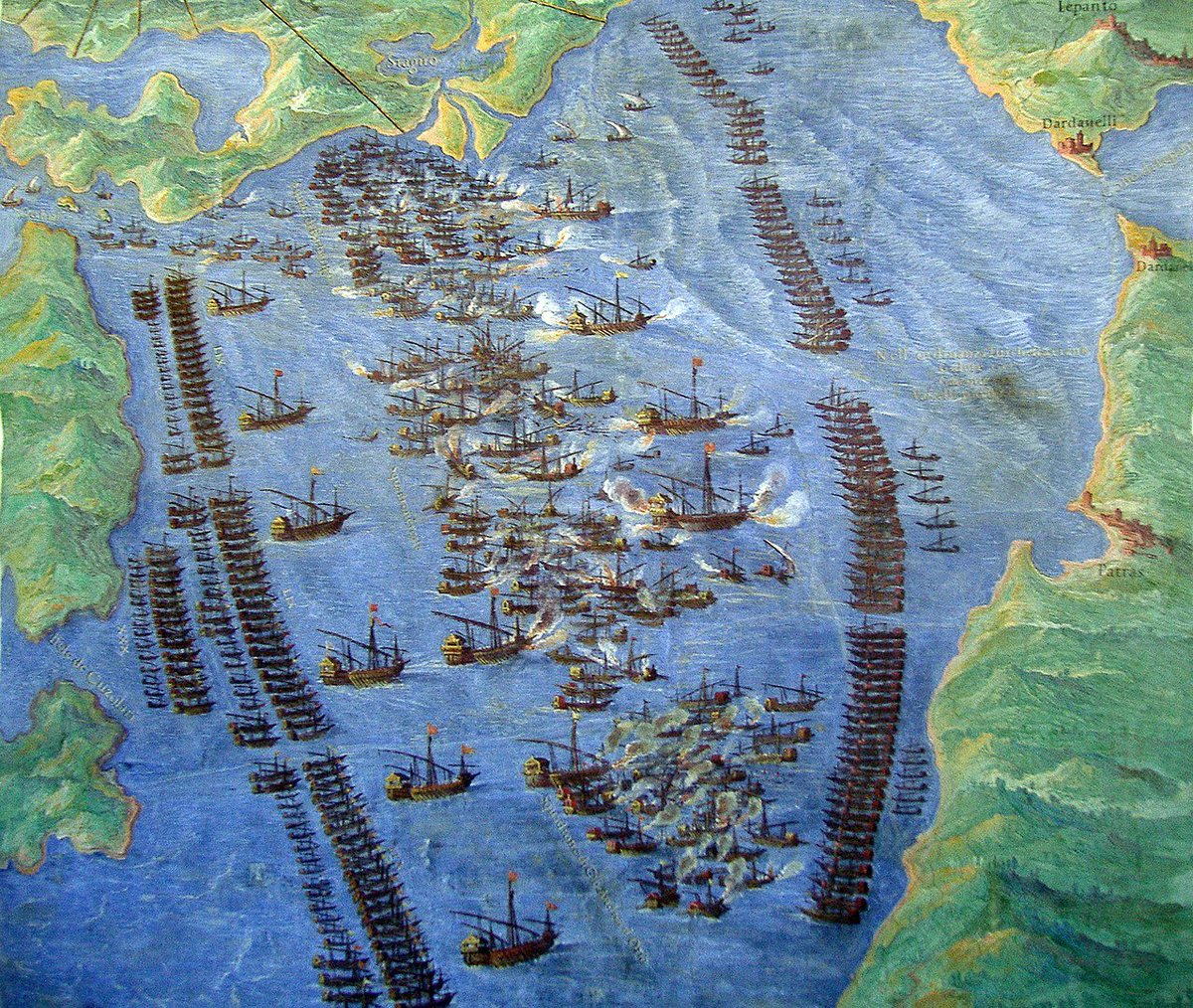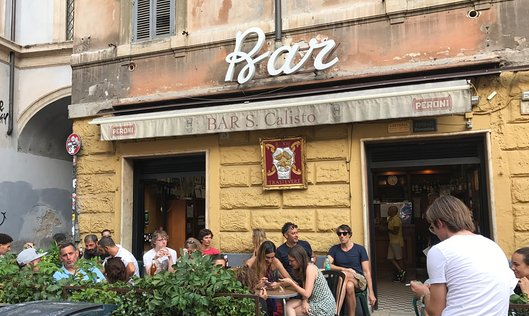Exactly 450 years ago, 7 October 1571, one of the greatest sea battles ever: the Battle of #Lepanto. 1/ 

The battle was between the Holy League (commanders were Don Juan of Austria - Spain and half brother of Philipp II, Sebastiano Venier - Venice and Marcantonio Colonna - Papal States) and the Ottomans (led by Ali Pasha who died in the battle). 2/ 



It was the largest naval battle since classical antiquity, involving more than 400 warships.
It was fought entirely between rowing vessels (galleys and galeasses. Venice's Arsenale was INCREDIBLY fast in building them). 3/
It was fought entirely between rowing vessels (galleys and galeasses. Venice's Arsenale was INCREDIBLY fast in building them). 3/

And it was a massacre: 30,000 Ottomans died and 10,000 casualties were on the Holy League side. 250 ships were also sunk, and 100+ captured.
"The sea was red with blood".
4/
"The sea was red with blood".
4/

Despite the victory, the battle had no immediate consequence. The Holy League did not regain any territories lost to the Ottomans prior to Lepanto, and Venice lost the wider War of Cyprus. On land, the Ottomans were still expanding and in 1683 arrived at the gates of Vienna. 5/ 

But the victory had huge symbolic importance and was credited to the Virgin Mary (Our Lady of the Rosary). It exerted a great effect on European morale. It was the subject of paintings by Titian, Tintoretto, and Veronese. GK Chesterton wrote a poem Lepanto in 1911. 6/ 

Young Miguel de Cervantes fought in the battle!
He lost the use of the left arm and therefore is known as *El Manco de Lepanto* (the one-armed man of Lepanto) in the Hispanic world. This may not be true, but still mind-blowing that such a GENIUS began his career as a soldier. 7/

He lost the use of the left arm and therefore is known as *El Manco de Lepanto* (the one-armed man of Lepanto) in the Hispanic world. This may not be true, but still mind-blowing that such a GENIUS began his career as a soldier. 7/


Today Lepanto is the Greek #Nafpaktos (Ναύπακτος), a fantastic town on the Ionian Sea/Gulf of Corinth. Must visit if you can.
[Disclosure: it's the beautiful home town of my wife!]
Ciao/FIN

[Disclosure: it's the beautiful home town of my wife!]
Ciao/FIN


• • •
Missing some Tweet in this thread? You can try to
force a refresh












